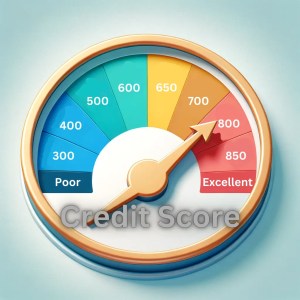- Mastering the Credit Game: The Definitive Guide to Building a Strong Credit Score
- Deciphering the Credit Puzzle: A Comprehensive Understanding
- Laying the Foundation: Starting Your Credit Odyssey
- Your First Ally in Credit Building: The Credit Card
- Advanced Strategies: Beyond Basic Credit Card Use
- Unleashing Your Financial Superpower: Credit Building
Mastering the Credit Game: The Definitive Guide to Building a Strong Credit Score
Embark on the Financial Empowerment Voyage: Demystifying Credit Building
Welcome to your transformative journey toward financial mastery! This is where you unlock the secrets to credit building, an essential tool for your financial liberty. Think of this as your all-access pass to a world where credit scores, loans, and credit cards are no longer mysteries but powerful allies in your financial toolkit.
Begin Your Journey with a Free Credit Score
Get your free credit score
Deciphering the Credit Puzzle: A Comprehensive Understanding
Dive into the intriguing world of credit, a realm where dreams take flight, and opportunities abound. Credit is essentially a dance of trust between you and lenders, a key to unlocking life’s milestones like your dream car or home. Remember, it’s more than just borrowing—it’s a pledge to repay, spiced with a hint of interest.
Laying the Foundation: Starting Your Credit Odyssey
New to the world of credit? No worries! Everyone starts somewhere. Building credit is a journey of small, manageable steps, not a daunting mountain climb. Arm yourself with patience, consistency, and a dash of savvy to navigate this path successfully.
Understanding Credit Scores: From Bad to Excellent
1. Bad Credit (300-579 FICO; 300-499 VantageScore) Bad credit indicates a history of missed payments, defaults, or possibly bankruptcies. If you’re in this range, lenders may be very hesitant to offer credit. For those who do qualify, interest rates and fees are typically much higher. Rebuilding from bad credit involves diligently paying current debts and possibly seeking advice from a credit counselor.
2. Fair Credit (580-669 FICO; 500-600 VantageScore) Fair credit suggests you’ve had some credit mishaps in the past or a short credit history. You may still qualify for certain loans and credit cards, but you’ll likely face higher interest rates compared to those with good or excellent credit. Building towards good credit from this range involves maintaining a history of on-time payments and careful management of credit balances.
3. Good Credit (670-739 FICO; 601-660 VantageScore) Good credit is a result of a fairly strong credit history with no recent major missteps. With good credit, you’ll find much easier approval for credit cards and loans, often with more favorable terms and interest rates. Maintaining this range involves continuing responsible credit habits, like timely payments and keeping balances low relative to credit limits.
4. Very Good/Excellent Credit (740-799 FICO; 661-780 VantageScore) and Exceptional Credit (800-850 FICO; 781-850 VantageScore) Falling in the very good to exceptional range indicates a history of responsible credit use, timely payments, and a good mix of credit types. In this range, you’ll likely qualify for some of the best interest rates and terms on loans and credit cards. It’s important to maintain the habits that got you to this point, including using credit responsibly and checking your credit reports regularly for accuracy.
Tips for Improving Credit Score
- For Bad to Fair Credit: Focus on paying down existing debts and avoid taking on new debt. Check your credit report for any errors and dispute them if necessary.
- For Fair to Good Credit: Continue making all payments on time, consider a secured credit card if necessary, and keep credit utilization low.
- For Good to Very Good/Excellent Credit: Keep diversifying your credit mix, maintain low credit utilization, and avoid opening several new accounts in a short period.
- For All Categories: Regularly monitor your credit score and report, set payment reminders or automatic payments to avoid late payments, and don’t hesitate to seek financial advice when needed.

Your First Ally in Credit Building: The Credit Card
Beyond the Plastic: Building Credit Like a Pro
Embrace the credit card, a vital companion in your quest for a robust credit score. Selecting your first card is an exciting step—opt for one with a user-friendly annual percentage rate (APR) and make it your mantra to clear your balance each month.
The Cardinal Rule: Timely and Full Payments
Picture this: each payment you make is a crucial chapter in your credit story. Timely, full payments are key, earning you credibility with lenders and weaving a credit history that dazzles.

Advanced Strategies: Beyond Basic Credit Card Use
Secured Loans: Your Stealthy Credit Building Tool
Ready to level up? Secured loans are your ace in the hole, demonstrating your financial reliability. Backed by assets like a vehicle or property, these loans are a robust way to showcase your creditworthiness.
Credit Management: Mastering Responsible Use
Your credit score is akin to a garden, thriving with careful nurturing. Responsible credit use is the fertilizer that helps it grow. Live within your means, pay bills punctually, and observe your credit score bloom into a symbol of reliability.
Understanding the Timeline: Building Credit Takes Time
Building a solid credit score is a marathon, not a sprint. Expect a journey of six months to two years to cultivate an impressive score. The ingredients for success? Regular, on-time payments and maintaining low credit balances. Keep an eye on your credit score; it’s like having a roadmap for your financial journey.
Confronting Challenges: Overcoming Credit Hurdles
The path to excellent credit is often strewn with challenges. Confront any obstacles, such as late payments or high balances, directly. Address these issues to transform your credit score into a beacon of financial reliability.

Frequently Asked Questions About Building Credit
1. How is a credit score calculated?
Your credit score is calculated using information from credit reports provided by the three major credit bureaus: Equifax, Experian, and TransUnion. The FICO® Score, one of the most widely known credit scores, uses five factors with varying weights: payment history (35%), amounts owed (30%), length of credit history (15%), new credit (10%), and credit mix (10%).
2. How can I build up my credit score?
Building a strong credit score involves establishing a positive credit history by making on-time payments and paying down account balances. To get started, it’s recommended to check your credit report annually from each major credit bureau, which you can do for free via AnnualCreditReport.org.
3. What are the best ways to start establishing credit?
If you’re new to credit, consider applying for a department store credit card or a secured credit card. Another option is a secured loan. The most crucial aspect, regardless of the method, is to ensure timely monthly payments.
4. Is there a shortcut to building credit quickly?
There is no quick fix or shortcut to building credit. Consistent, responsible behavior like making payments on time and keeping balances low is key. Progress may be gradual, but over time, your efforts will reflect in your credit report.
5. Can credit card companies raise my interest rate even if I’ve paid my bills on time?
Due to the Credit CARD Act, issuers can’t raise rates on existing balances arbitrarily. However, they can increase rates on new purchases with a 45-day advance notice. If you’re facing a rate hike, try negotiating a lower rate or consider transferring the balance to a card with better terms.
6. Do I have to pay a debt collector for an old debt?
It depends on the statute of limitations in your state. If the debt is too old, it might not be legally enforceable. However, keep in mind that collection items can be reported on your credit report for up to 7.5 years from the original delinquency date.
7. What is the ideal number of credit cards to carry?
Two major credit cards are generally sufficient for most people. One should be a low-rate card for balance carrying, and the other a card with a grace period and no annual fee, unless you’re earning substantial rewards. It’s also beneficial to have a mix of different credit types, like a mortgage or car loan, in addition to credit cards.
8. What should I do if a family member has a lot of debt?
The best approach is to provide financial literacy resources. If considering a loan, either gift the amount (with no expectation of repayment) or create a formal loan agreement with an automatic payment setup. However, carefully assess whether this might enable poor financial habits.
9. Am I responsible for a deceased family member’s debt?
Generally, you are not responsible for a deceased person’s debt unless you co-signed for it. In community property states, debts incurred during marriage might be your responsibility. Creditors typically look to the estate for payment, but they may pursue co-signers for larger amounts.
10. What is the difference between a credit score and a credit report?
Your credit report provides a detailed record of your credit history, including debt amounts, open accounts, and payment history. In contrast, a credit score is a numerical representation of your creditworthiness, derived from the information in your credit report.

Unleashing Your Financial Superpower: Credit Building
You’ve now equipped yourself with essential knowledge to navigate the credit universe. Every step, from choosing the right credit card to making punctual payments or exploring secured loans, elevates your status as a credit champion.
Crafting Your Financial Saga: Empowered Decision-Making
As you continue your credit journey, remember, this is your unique story. Informed decisions and a history of financial prudence will forge your path to success. Our team is here to support and guide you as you stride toward credit excellence.
Launching Your Journey to Credit Mastery
Your quest to build credit is a thrilling expedition towards financial freedom. With the right knowledge, patience, and determination, you’re paving the path to a prosperous financial future. Embrace this journey, open that first credit card, ensure timely payments, and revel in the exciting financial voyage ahead.
Connect with Us: Your Partners in Financial Success
We’re thrilled to be part of your credit journey!
Our goal is to empower you with the tools you need to master the art of credit building.
Have questions, insights, or stories to share? Reach out to our team—we’re here to support you on your path to financial greatness. Thank you for joining us on this adventure!
Join in the Conversation at Simply Sound Society our Social Media Platform and Forum!


Do not forget to check out all of our exciting free tools! Calculators, quizzes and downloadable checklists all for free.

- Mastering the Mortgage Process: The #1 Guide to Home Buying
- Exploring Healthy Fast-Food in 2024: The Surprising Truth
- The Sesame Care Advantage: Revolutionizing Healthcare Access
- Healthcare Assistance for Low-Income Families in the U.S.
- Ultimate Guide to Assistance Programs in the U.S.: Federal, National, and State-Specific Support















